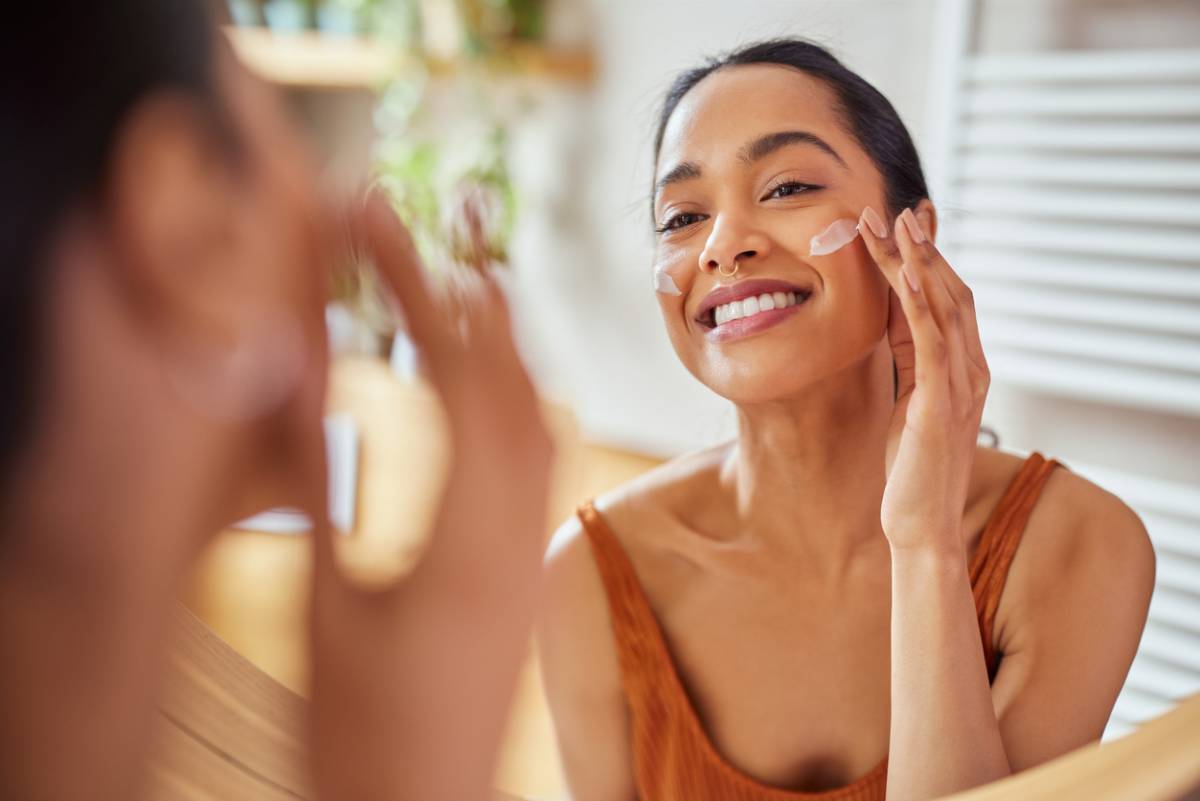Skin care is an essential part of maintaining the health and appearance of the skin. There are so many health and aesthetic benefits when caring for your skin. It protects your skin from environmental damage and improves your overall skin health. It also slows down the aging process, keeps you looking younger, and builds your confidence. Despite the benefits of proper skin care, there are several myths. This is because the industry is worth billions of dollars. Staying informed is necessary to avoid being taken advantage of. Consider the top four skin care myths.
4 Skin Care Myths
There is a lot of misinformation about skin care. To keep your skin healthy and fresh, avoid buying into the following skin care myths.
#1 Myth: You Do Not Need To Use Sunscreen Daily
Some people think you do not need sunscreen every day or that you do not need it unless you go outdoors. Even worse, some people think that you do not need sunscreen when you go outdoors unless the sun is out. This is completely false and can lead to skin damage, hyperpigmentation, and skin cancer. The reality is that sunscreen should be a part of your daily morning skin care routine.
It is necessary to wear at least 30 SPF every single day, even if you are staying indoors. Sunlight can easily come through windows and impact your skin. If you do not put it all over your entire body, be sure to put it on the exposed areas of your body. This includes your face, neck, and hands. Consistent sunscreen use is one of the best ways to protect your skin and keep it looking youthful.
#2 Myth: Oily Skin Does Not Need To Be Moisturized
Oily skin can cause serious insecurities about your appearance. Oiliness can make it difficult to keep your makeup intact and can make you look greasy. This can be exacerbated by the acne caused by oily skin. This leads to a vicious cycle that can leave you feeling hopeless about your skin. Many people with oily skin avoid moisturizer in an attempt to manage the greasiness. This is a huge mistake as it causes even more oil production.
Oily skin still needs hydration. However, you need to choose the right moisturizer for your skin. A lightweight, oil-free, non-comedogenic formula is great for oily skin. These are often gel-based with ingredients like hyaluronic acid. This keeps your skin moisturized without causing excess oil. If you cannot find a product that works for you, consult with a professional at a medical spa. They are skilled in creating customized skin care routines for a variety of skin issues.
#3 Myth: Avoid Anti-Aging Products Until You Are Older
The natural aging process begins in your 20s due to the loss of collagen and elastin. These fibers help keep your skin looking plump and youthful. Additionally, environmental pollutants and unhealthy lifestyle habits can impact your skin as early as your teens. Things like poor sleep, chronic stress, and smoking can do a lot of damage to your skin. This is why you should not wait until your 40s to begin using anti-aging skin care products. It is a common myth that you can wait until you are older to address your skin issues.
You can start using anti-aging products as early as your 20s. However, one of the best anti-aging products you can use is SPF. You should use this every day starting as early as possible. However, once you hit your 20s, you should include antioxidants and retinol in your routine. A combination of at least SPF 30, vitamin C, and retinol can prevent the early signs of aging. They are proven to be effective in reducing fine lines, wrinkles, and skin sagging.
#4 Myth: Makeup Causes Acne
Makeup is something many women use daily. It is a great way to enhance your natural features and boost your confidence. However, it is a common myth that makeup causes acne. Makeup does not cause acne directly. In fact, some makeup has SPF in it, which protects your skin from sun damage. Some makeup also has skincare in it, which can be a great addition to your skin care routine. Common ingredients include hyaluronic acid and niacinamide.
If you do wear makeup and notice an acne flare-up, it may be a hygiene issue. It is important to use makeup that has not been exposed to germs or other people. Avoid sharing your makeup, especially if you use it around your eyes or mouth. Additionally, it is important to wash your brushes regularly. They can harbor harmful bacteria that can cause acne.

